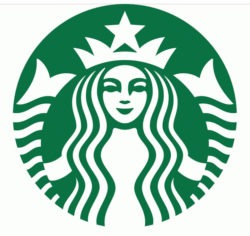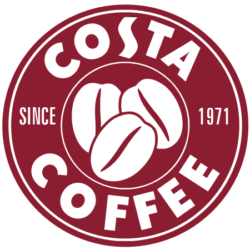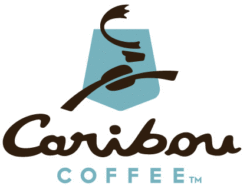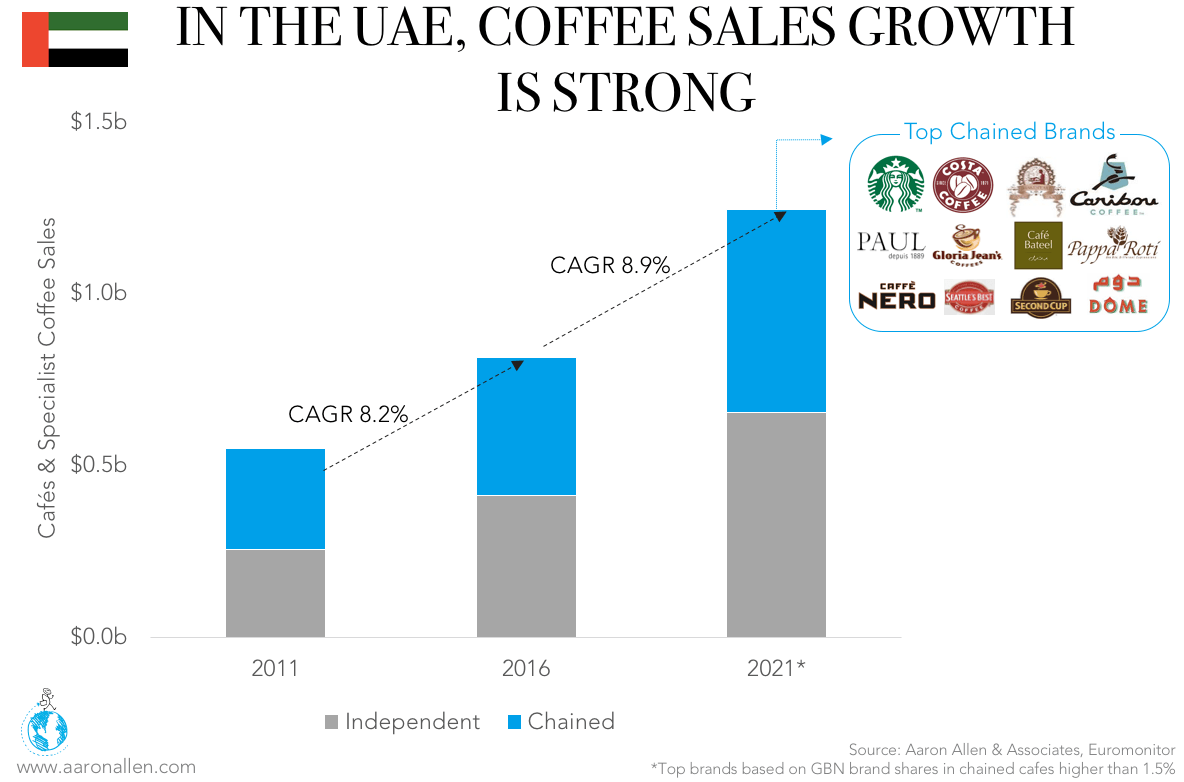Coffee has long been a part of Middle Eastern culture and, in recent years, chains have caught on, opening a flurry of coffee shops in thriving regions like the UAE and Saudi Arabia. Starbucks alone touts nearly 600 stores in 12 Middle Eastern and North African countries employing more than 10,000 people. Below, we round up the top five coffee chains (based on the number of locations they have in the UAE), along with some of their recent news and how they’ve grown over the years.
Starbucks

History
Starbucks has operated in the Middle East since 1999, through a licensing agreement with trading partner and licensee MH Alshaya WLL, a private Kuwait family business. Today Alshaya Group is recognized as one of the most influential retailing franchisees in the region, operating some 600 Starbucks stores in the region. In MENA, Starbucks partners with Alshaya Group to operate Starbucks stores in Bahrain, Egypt, Jordan, Kuwait, Lebanon, Morocco, Oman, Qatar, Saudi Arabia, Turkey and United Arab Emirates.
There are close to 450 Starbucks stores in the GCC (as of Q3 2017), and the number of outlets in the region has grown 74% in the last seven years. Qatar leads this growth, increasing the number of stores by 2.7x (from 9 in 2010 to 25 this year), with Bahrain coming in second, more than doubling the number of stores in the same period. These two countries, however, account for only 11% of the GCC Starbucks locations, with the majority (35%) located in the UAE. The number of stores in Saudi Arabia and Kuwait is the same (115), and considering that the former has 7.5 times the population of the latter, a larger expansion in the KSA seems likely.
Recent News
- After a temporary ban, women were again welcomed to a Saudi Arabia Starbucks store in February 2016. Prior to that, one Starbucks in Riyadh had hung a sign reading, “PLEASE NO ENTRY FOR LADIES ONLY SEND YOUR DRIVER TO ORDER THANK YOU.”
- In February 2017, Kuwait opened its first “Reserve” store to hit MENA, which includes a coffee bar and combines local design with the third-wave coffee movement.
- In the third quarter of 2017, sales grew 2% in the EMEA region.
- Starbucks’ Opportunity Café opened its doors in MENA in June 2017, offering workshops on CV writing, employability and entrepreneurship.
Costa Coffee

History
The first Costa store outside the UK opened in Dubai in 1999. Costa operates in the GCC as Costa M.E.N.A Trading DMCC with a 100% ownership. In Kuwait, the chain is represented by Kuwait Aviation Services Company (KASCO) and was launched in Qatar by The Jawad Business Group in 2003. Today, its largest branch is located in Dubai and can seat 320 people.
Recent News
- In January, 2017, Costa Coffee opened its first Middle Eastern drive-through. Located near Kite Beach on Jumeirah Beach Road in Dubai, the two-story café is open 24 hours a day, seven days a week. To celebrate its launch, Costa gave away a Jeep Wrangler.
- A drone delivered Costa coffee to Kite Beach in Dubai in September 2017, as a move meant to launch the chain’s drone drop program. In a statement, the chain said a survey found that 82% of its customers would opt to have a drone deliver their food or beverage. Baristas create the beverages and, within 15 minutes of receiving the order, send them straight to the beach using a specially engineered drone. That same month, Costa UAE launched cold brew coffee, a chilled drink made from 100% single origin Arabica Colombian beans.
- In June 2017, Costa Coffee UAE announced its “Happiness is Giving” initiative, which allows customers to gift the value of one of a range of items — including a chocolate bar, espresso, latte or a Frostino — to humanitarian organization Emirates Red Crescent. The initiative, which rolled out across all Costa stores Dubai, aims to encourage customers to get involved with the Year of Giving.
- Costa launched its Abu Dhabi International Airport location (the chain’s 134th store in the UAE) in March 2016.
- Also in 2016, Alghanim Industries (the company behind Wendy’s and Costa Coffee franchise operations) announced the introduction of Gender Equality Policies, which aim to increase the number of working women in the private sector. In a statement, Alghanim said the policy “offers businesses up to 90 days paid maternity leave and the option to extend unpaid maternity leave for a total of four months.”
Shakespeare & Co.

History
The Shakespeare and Co. concept launched in Dubai in 2001, headed by Mr. Edward T. Saad and comprised of four business segments: café-restaurants, floral creations, a bakery, and catering. The company entered into catering in 2010. The cafés and restaurant represents the core of the concept and, while all locations is distinctly “Shakespearean,” each is unique in terms of décor and layout (all of the furnishings are even handcrafted in the company’s own workshops, to distinguish it from its competitors). Today, Shakespeare & Co. boasts 1,400 employees, 38 UAE restaurants and an anticipated 100 total outlets by 2018. It remains headquarted in Dubai and has 24 franchises.
Recent News
- In June 2017, Shakespeare & Co. opened its tenth Abu Dhabi outlet, based in Dalma Mall, opposite Mohammed Bin Zayed City.
- As of 2016, the company had a total of 39 stores in the GCC, operating in Dubai, Sharjah, Ajman, Abu Dhabi, Fujairah, and Ras Al Khaiman. It has plans to open two new stores in 2017 at Beachfront, Umm Al Quwain and Kalba Squares, Sharjah.
Caribou Coffee

History
The Caribou Coffee brand was brought to the Turkish market in 2011 mutually by Al Sayer Family from Kuwait and Yıldız Holding, each having 50% of the shares. In 2015, all those shares were transferred to Al Sayer Group. From that point on, the company’s Turkey office of Caribou Coffee, which is the second largest coffee chains of US, has been managed by Al Sayer Group, the Middle East franchise holder of the brand. Having penetrated the coffee market in Turkey after setting up its first shop in Caddebostan in December 2011 (and now boasting 40 branches in 10 different cities throughout the region), Caribou now offers 24-hour home delivery as well as catering and canteen order services.
Recent News
- In January, 2016, Caribou executives from around the world attended a conference in Dubai to discuss “the reinforcement of the leading position of the brand across promising markets following the multiple success stories achieved by the brand,” according to a company statement.
- Posts on the company’s Instagram page offers a hint that Caribou is now pushing low-calorie meals in addition to its coffee drinks. Meal options now available at Kuwait locations include “light and healthy” wild rice.
Paul

History
After launching as a small bakery in northern France over 125 years ago, PAUL today has locations throughout the globe, offering not just coffee, but freshly-baked breads, sandwiches, soups and salads, plus a selection of signature French dishes. The first UAE café was opened by Azadea in 2003 in Kuwait. Today, the company operates PAUL locations in Bahrain, KSA, Kuwait, Oman, Qatar, UAE, Jordan and Egypt. The GCC based cafés do not offer yet offer mobile apps but do offer delivery in some areas.
Recent News
PAUL has opened a number of locations throughout the region in recent years. In January 2017, PAUL opened a location at Al Yasmin Mall in the KSA; in May 2016, it launched its Mall of Arabia location in Jeddah, KSA; in April 2016, PAUL opened at Riviera in Damam.
The Strength of the UAE’s Coffee Segment
Coffee shop sales are one of the most dynamic foodservice segments in the United Arab Emirates. Sales at Cafés and Specialist Coffee Shops are expected to remain strong in the next few years, achieving an 8.9% CAGR (2016 – 2021). Both independent, home-grown concepts and international chains (working through local operators) are expected to catch consumer attention.  There’s still a lot of untapped potential in coffee, and we’re likely to see new players sprout up (as well as those above to expand within the region and beyond). Just look at how the segment has exploded in the US, where it’s estimated impact on the economy in 2015 was $225 billion, or approximately 1.6% of the country’s Gross Domestic Product (GDP). The study also found that consumers spent $19.3 billion at coffee shops. As a result, it is evident that the segment can (and will) a significant role in the UAE economy.
There’s still a lot of untapped potential in coffee, and we’re likely to see new players sprout up (as well as those above to expand within the region and beyond). Just look at how the segment has exploded in the US, where it’s estimated impact on the economy in 2015 was $225 billion, or approximately 1.6% of the country’s Gross Domestic Product (GDP). The study also found that consumers spent $19.3 billion at coffee shops. As a result, it is evident that the segment can (and will) a significant role in the UAE economy.
About Aaron Allen & Associates
Aaron Allen & Associates is a leading global restaurant industry consultancy specializing in growth strategy, marketing, branding, and commercial due diligence for emerging restaurant chains and prestigious private equity firms. We work alongside senior executives of some of the world’s most successful foodservice and hospitality companies to visualize, plan and implement innovative ideas for leapfrogging the competition. Collectively, our clients post more than $100 billion, span all 6 inhabited continents and 100+ countries, with locations totaling tens of thousands.

